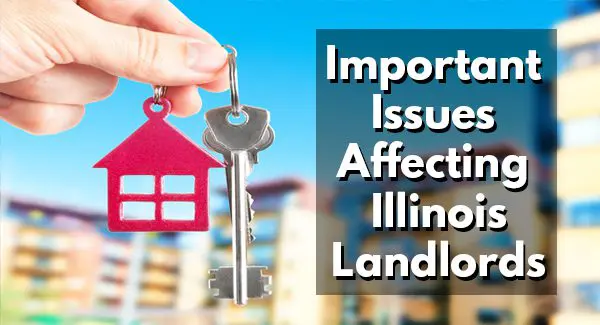- Landlord & Tenant Law, Legal Updates
- Illinois
In a surprise move, Governor Pritzker issued a new Executive Order (2021-13) on June 11, 2021; two weeks in advance of the expected issuance date. This recent Order opens the door to several new categories of evictions.
For the first time in fifteen months, Illinois landlords will have options in dealing with disruptive, holdover, and unauthorized residents.
Eviction Moratorium Modified
Executive Order 2021-13 establishes the following important changes:
- Eviction Orders entered before March 20, 2020 can be enforced by the Sheriff effective immediately;
- All Eviction Orders entered against Non-Covered Persons (tenants not covered by an IHDA or CDC Tenant Declaration) can be enforced by the Sheriff starting June 26, 2021;
- All types of evictions against Non-Covered Persons are allowed starting June 26, 2021.
Eviction Orders prior to March 20, 2020
Due to these recent changes, our law firm can place eviction orders that were entered by the Court prior to March 20, 2020, or entered against Non-Covered Persons, with the Sherriff for execution.
However, Illinois landlords must keep in mind that if they have applied for or received rent relief grant funds this spring on behalf of a certain unit, you cannot pursue eviction for the months to which the grant money applies. Accordingly, if the grant money can be applied to June or future months, you would be barred from placing eviction orders with the Sheriff until the funds are exhausted.
Further, if the tenant tendered a signed IHDA (Illinois Housing Development Authority) or CDC (Centers for Disease Control) Tenant Declaration at any point, the tenant may be protected from evictions. Please contact our office to discuss these cases.
Non-Covered Tenants
Second, Illinois landlords are now allowed to serve termination notices and file evictions against Non-Covered Persons for any legal basis including:
- holdovers,
- termination of month-to-month tenancies,
- unauthorized occupants, and
- conduct other than direct threats.
For this new category of evictions, landlords must establish that the tenant is a Non-Covered Person by first serving the tenant with the IHDA Tenant Declaration and then waiting 5 days. If the Tenant does not sign and return the Declaration, then the landlord may serve a termination notice.
Please note that many federal, state, and local restrictions are still in place regarding the language of certain termination notices. Do not hesitate to contact our office to ensure you are serving the correct form. Additionally, landlords cannot serve a termination notice if they have applied for or received grant funds from the spring, 2021 programs, or if the Tenant has returned a signed Declaration to the landlord at any point.
KSN attorneys are familiar with the latest regulations to avoid technical defects that could otherwise result in possible dismissal of your eviction cases. We will work quickly and efficiently to secure eviction orders against non-covered tenants.
Legal Guidance
KSN is prepared to help Illinois landlords navigate the eviction process, assist in drafting termination notices, place eviction orders with the Sheriff, and file your eviction cases.
Our monthly retainer program covers the majority of your non-litigation legal expenses for a low monthly fee. Moreover, the retainer includes our assistance in preparing your files for eviction under this new Illinois Executive Order.
Our law firm will continue to monitor the ongoing changes with the eviction process and their impact on landlords and rental property managers. If you would like to speak to one of our attorneys regarding evictions, our retainer program, or other legal concerns, KSN can be reached by calling 855-537-0500 or by visiting ksnlaw.com.
Since 1983, KSN has been a legal resource for condominium, homeowner, and townhome associations. Additionally, we represent clients in real estate transactions, collections, landlord/tenant issues, and property tax appeals. We represent thousands of clients and community associations throughout the US with offices in several states including Florida, Illinois, Indiana, and Wisconsin.
Please note the material contained in this article is for educational and informational purposes only and does not constitute legal advice. No attorney-client relationship is established by your review or receipt of the information contained in this article. You should not act on the information discussed in this article without first obtaining legal advice from an attorney duly licensed to practice law in your State. While KSN has made every effort to include up-to-date information in this article, the law can change quickly. Accordingly, please understand that information discussed in this article may not yet reflect the most recent legal developments. Material is not guaranteed to be correct, complete, or up to date. KSN reserves the right to revise or update the information and statements of law discussed in the article law at any time, without notice, and disclaims any liability for your use of information or statements of law discussed on the article, or the accessibility of the article generally. This article may be considered advertising in some jurisdictions under applicable law/s and/or ethical rules/regulations. © 2021 Kovitz Shifrin Nesbit, A Professional Corporation.


